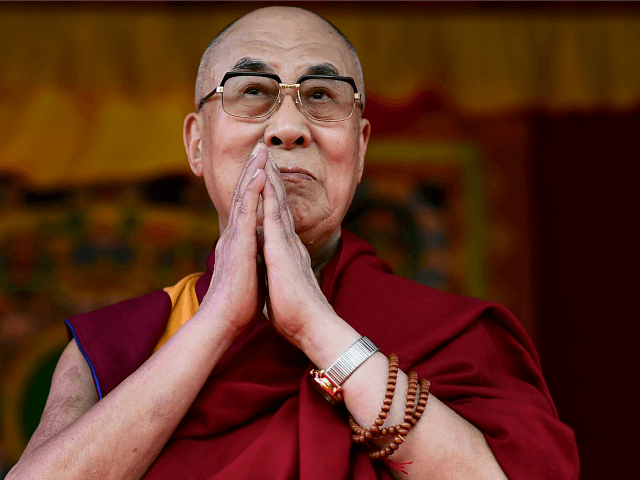Local Chinese governments on the border with Mongolia have imposed new fees on companies exporting minerals from Mongolia into China, a move that closely follows Mongolia’s warm welcome of Dalai Lama.
The Chinese Communist government has long considered the Dalai Lama, the head of the Buddhist religion, a dangerous separatist for his support of sovereignty for Tibet.
The Financial Times reports that the new fee particularly affects copper and coal exporters and that one such company has already suspended its operations on the border. The Rio Tinto corporation has suspended coal shipments into China out of its Oyu Tolgoi mine because the new fee “has led to safety and security concerns as well as unreasonably long waiting times to cross the border.”
The Financial Times notes that the official reason for the new fee is “mainly for the repayment of principal and interest of bank loans taken out for port infrastructure construction as well as port facilities maintenance, management and other normal operating costs,” according to a local government document published long before the Dalai Lama arrived for a visit in November.
CNBC reports, however, that the Chinese Foreign Ministry has refused to deny that the tax is a punishment for Mongolia’s reception of a prominent opponent of Beijing. Foreign Ministry spokesman Geng Shuang instead reiterated that “China has expressed its position many times” on the Dalai Lama.
Mongolia has levied a protest against the action, with Mongolian diplomat Gonchig Ganbold issuing a statement requesting India speak out against the fee. “India should come out with clear support against the difficulties that have been imposed on Mongolia by China, which is an overreaction to the religious visit by His Holiness Dalai Lama,” he said. “We have not changed our ‘One China’ policy, so Beijing’s response to Mongolia hosting the spiritual leader is really not justifiable.”
As Mongolia’s population is largely Buddhist, the Dalai Lama enjoys beloved status among many there. Beijing made its displeasure at the Dalai Lama’s visit to Mongolia anyway, however, with Foreign Ministry spokesman Geng Shuang saying at the time, “China is firmly opposed to the anti-China secessionist activities by the Dalai Lama in any capacity and under any name, as well as any contacts between the Dalai Lama and the authorities of any countries.”
Chinese officials may feel added pressure to condemn nations that show good will towards separatist entities within China following a congratulatory call between Taiwanese President Tsai Ing-wen and American President-elect Donald Trump. Trump’s treatment of Tsai as an equal — and, thus, giving implicit acknowledgment of Taiwanese sovereignty — may embolden separatists in Tibet, Hong Kong, or Xinjiang to increase their activism to split from Beijing.
Trump appears to have concerns about China at the forefront of his foreign policy strategy. The first foreign head of state to meet Trump following the U.S. presidential election was longtime Beijing foe Shinzo Abe, the Prime Minister of Japan. Trump has also reached out to Philippine President Rodrigo Duterte, who has expressed a desire to deepen his country’s relations with China under President Barack Obama but spoke highly of Trump following their call last week.
The Philippines and China are currently embroiled in a territorial dispute over islands in the South China Sea.

COMMENTS
Please let us know if you're having issues with commenting.